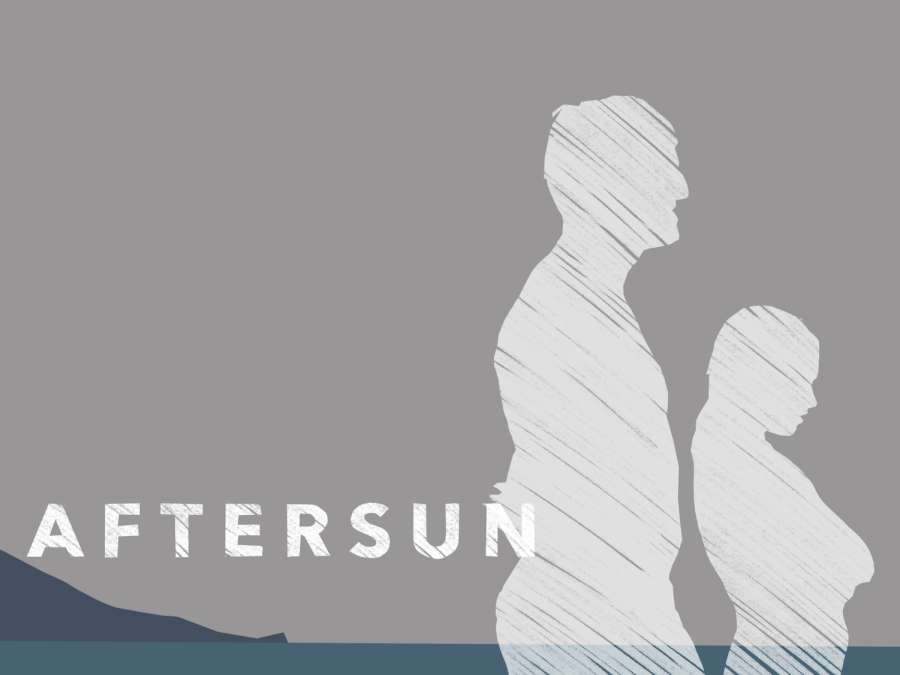Aftersun: An Exploration of the Fleeting Innocence of Childhood
4/5 Falcons
January 15, 2023
Content warning: Includes references to mental health struggles, depression, and suicide.
Aftersun is an honest and poignant story about memory, grief, and understanding. Capitalizing on dreamy colors and sounds, director Charlotte Wells is able to capture an astounding and empathetic view of family, parenthood, and mental health. In her cinematic debut, Wells puts together a movie that delivers a resounding punch—one that will resonate long after leaving the theater.
Wells captures some elements of her childhood in Aftersun, increasing the sincerity and realism in her cinematic representation of pre-adolescence. The film takes place in the 1990’s, when eleven-year-old Sophie (Frankie Corio) goes on holiday with her dad, Calum (Paul Mescal). Although it isn’t clear at first, it seems that Calum has left Sophie’s mother after becoming a young dad, and he has relocated to England while Sophie and her mother still live in Scotland. This holiday to a seaside resort in Turkey is a rare opportunity for conversation and for the father and daughter to catch up. However, the trip is soon revealed to be a financial burden on Calum. Through subverted clues, the film shows that he is struggling with everything: finances, life, his quickly deteriorating mental health, being a father, and keeping all of his problems undercover so that he doesn’t worry Sophie. Calum wants to prevent Sophie from growing up and finding that the world isn’t so rosy; he wants her to be forever his child.
Aftersun is successful because it captures the feelings of early adolescence from Sophie’s perspective and the loss of innocence that every adult has experienced. Even though Calum does his best to prevent Sophie from being affected by his depression, it is obvious that the keen and observant Sophie knows something is wrong. A crucial point in the film, where Calum reveals his inner turmoil, is when Sophie questions him about what he thought he would be when he was Sophie’s age. This question emotionally breaks Calum, as he contemplates how different his life could have been had he made the right decisions: specifically, if he had not met Sophie’s mom.
Eventually, the film skyrockets back to the present, with Sophie being in her thirties, around the same age as Calum on that holiday. It is gut-wrenching as we see Sophie continue to contemplate that last vacation with Calum, wondering if she could have helped him in any way.
Overall, Aftersun is a gentle, contemplative, and graceful film that takes full advantage of masterful editing, lighting, and soundtrack. Even though the film sometimes detracts from its original purpose by focusing too much on visual aspects, it makes up for this with meaningful symbolism such as the water and ocean being a central anchor. But just as a storm on the ocean can be sudden and devastating, there is always a quickly deteriorating tension, an uncomfortable feeling left behind. The beauty of Aftersun lies not in the plot, but in the deep, powerful, and stirring feelings that it leaves you with, much like the ocean at night.









